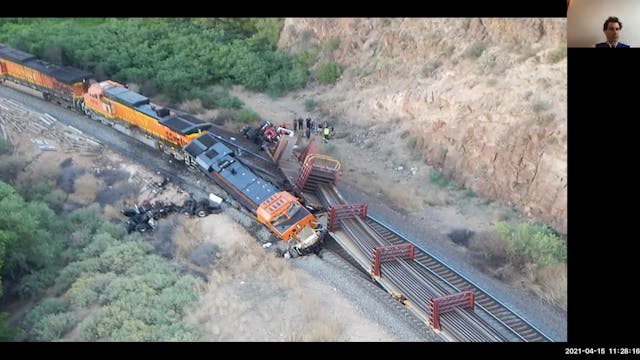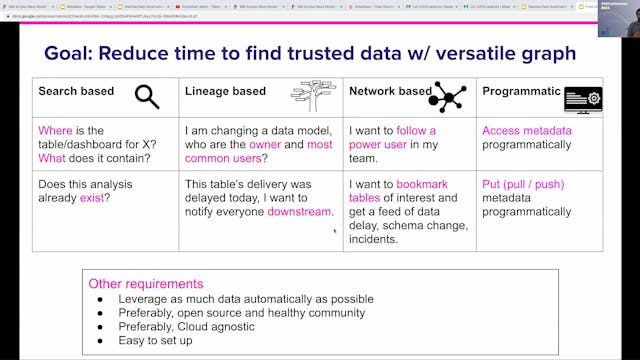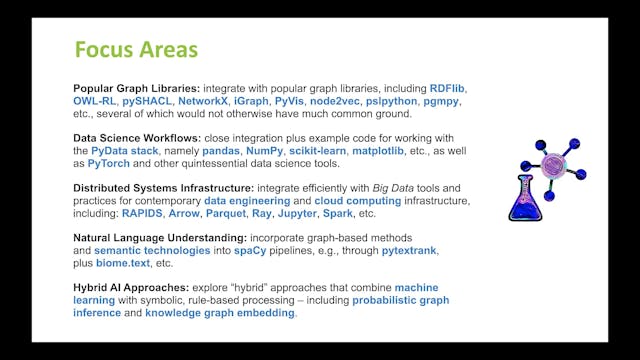Antonin Delpeuch | Scaling & Maintaining OpenRefine
KGC21 | Conference Only Pass
•
18m
OpenRefine is a data wrangling tool which celebrated its 10th birthday this year. Cleaning and importing data in knowledge graphs is its core use case, since it was originally designed to help populate Freebase. In this talk I want to give a broad overview of the latest developments in the tool and our efforts to consolidate it as a mature open source project. Please come along and tell us where you would like to see the tool in a few years!
Antonin Delpeuch provides information about OpenRefine where he helped develop the open-source project to what it is today and how much it takes scaling & maintaining OpenRefine with the team from W3. In this video he talks about the features of OpenRefine which is an open source data cleaning tool that is very accessible. Some of the features he talks about from the OpenRefine project is reconciliation and the scalability. He talks briefly about the history of the tool and how it was originally created for knowledge graphs and he mention the growth of the original project to become what it is today. #knowledgegraphs #knowledgegraphconference #knowledgegraphtools
Up Next in KGC21 | Conference Only Pass
-
Freddy Lecue | On The Role Of Knowled...
Machine Learning (ML), as one of the key drivers of Artificial Intelligence, has demonstrated disruptive results in numerous industries. However one of the most fundamental problems of applying ML, and particularly Artificial Neural Network models, in critical systems is its inability to provide ...
-
Mark Grover | From Discovering To Tru...
Over a third of analyst time is spent in understanding what data exists, can it be trusted and how to use it. Countless Data Engineering time is spent in answering the same questions about data - what does that column mean, how does it get populated, how often does it update and if there’s any in...
-
Paco Nathan | Graph Based Data Science
Python offers excellent libraries for working with graphs: semantic technologies, graph queries, interactive visualizations, graph algorithms, probabilistic graph inference, as well as embedding and other integrations with deep learning. However, most of these approaches share little common groun...



